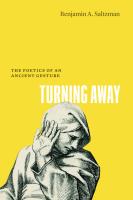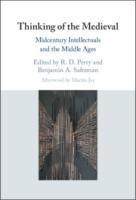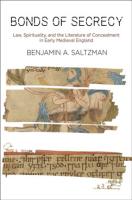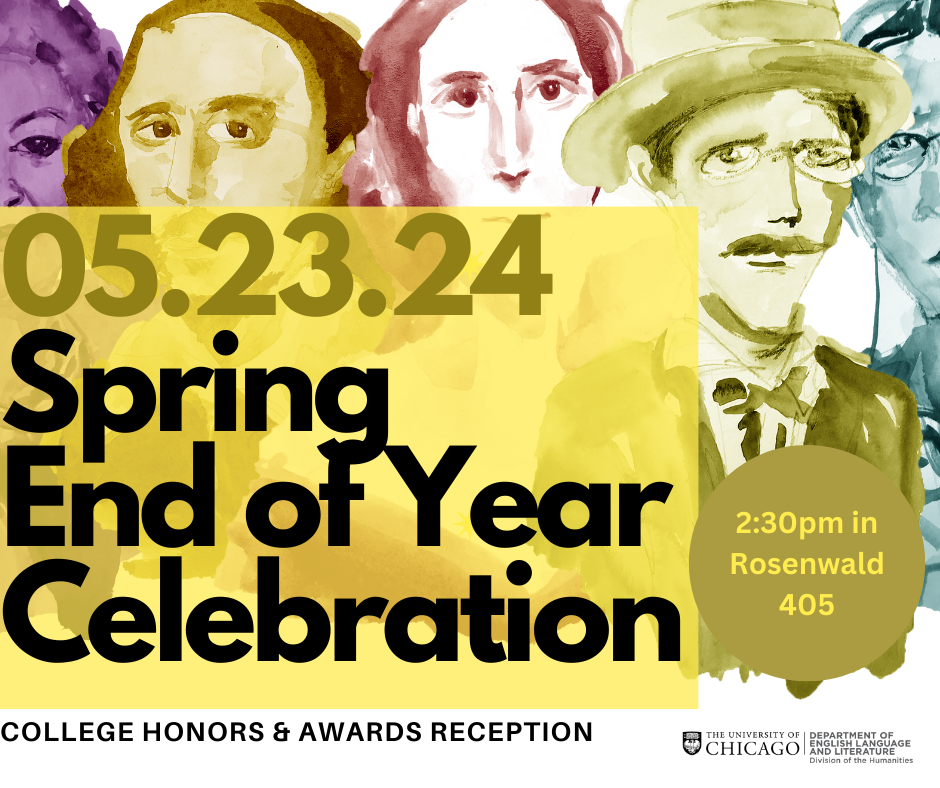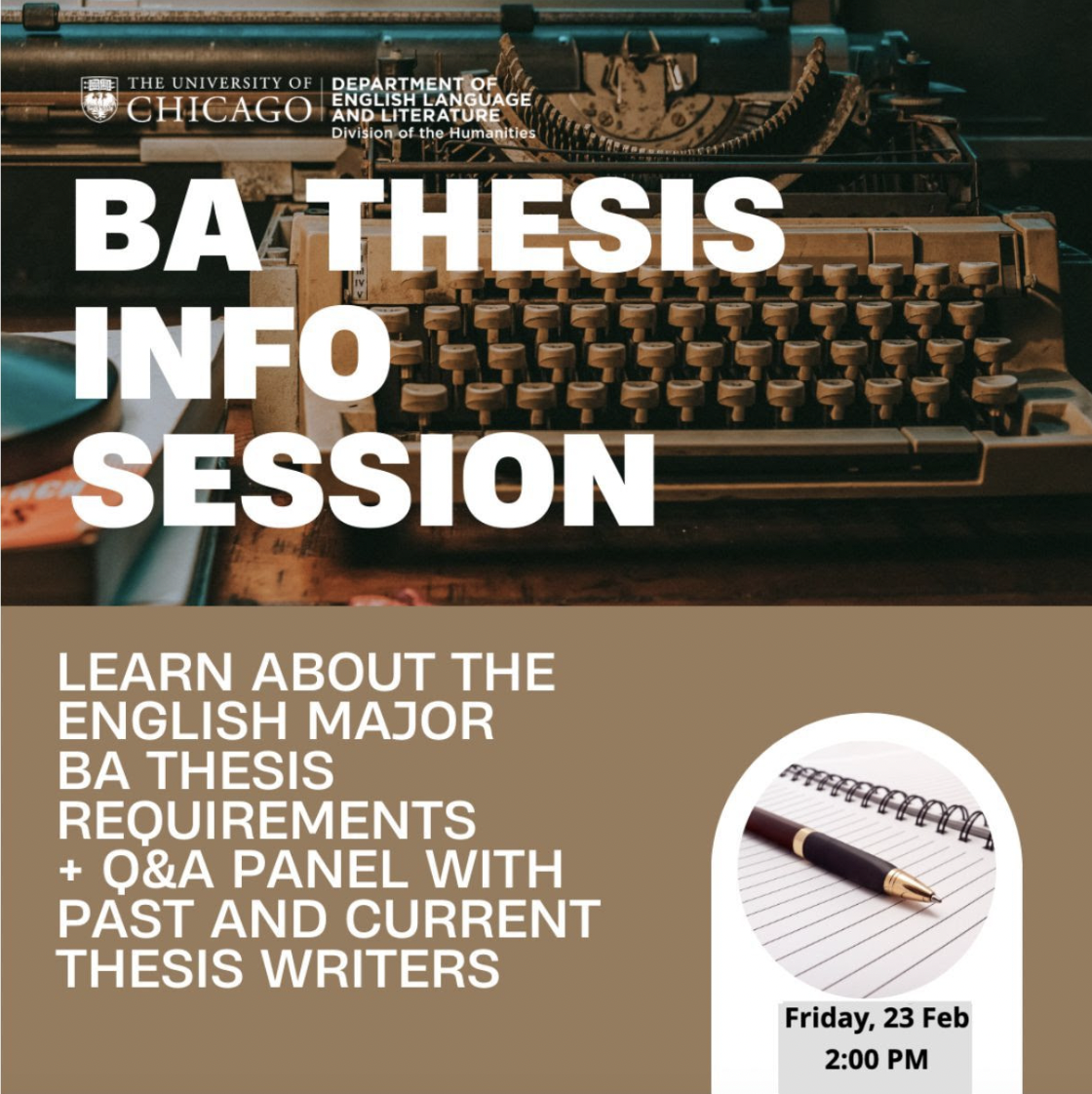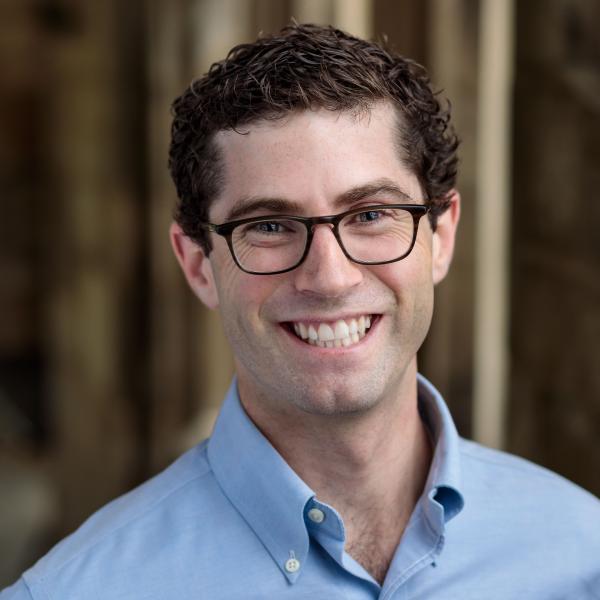
As a scholar of poetry and culture working across media and historical periods—antiquity, modernity, and the in between—I try to understand why we so often confront the world by interrupting our relation to it.
Biography
My most recent book, Turning Away: The Poetics of an Ancient Gesture, will be published by the University of Chicago Press and has been supported by a fellowship from the National Endowment for the Humanities. Here, I ask what it means to turn from the afflictions of others, what it means to lower our heads in grief or cover our faces in shame. By looking to the past, I recover such gestures of aversion as an essential aspect of being human and engaging with the world. These are often inscrutable gestures at the limits of expression, gestures that pose life's most difficult confrontations. In order to theorize why turning away has become maligned as an untenable posture in modernity and our contemporary moment, I work from five premodern scenes in which a figure looks away or covers their face: Agamemnon in Timanthes’s Sacrifice of Iphigenia, Leontius in Plato’s Republic, Alypius in Augustine’s Confessions, the onlookers to the Crucifixion in medieval and early modern art, and illustrations of Adam and Eve in their postlapsarian state. These scenes refract across a sea of art and poetry and philosophy. They ripple through the art of Francisco Goya, Marc Chagall, Salvador Dalí, and Rotimi Fani-Kayode, across the poetry of John Donne, William Blake, and Langston Hughes, alongside the thinking of Hannah Arendt, Walter Benjamin, Hans Blumenberg, Ralph Ellison, and Primo Levi. Along the way, the affective multivalences of these gestures invite us to reflect on our own positionality in witnessing the suffering of others and our own reflexive discomfort when we happen to turn away.
My first book, Bonds of Secrecy: Law, Spirituality, and the Literature of Concealment in Early Medieval England (University of Pennsylvania Press, 2019), investigates the tensions between the medieval Christian belief in divine omniscience and the social experience of secrecy. I argue that as these tensions manifested in the legal culture and monastic life of early medieval England, they profoundly shaped the practices of literary interpretation during the period. This book was supported by several grants and fellowships, including ones from the ACLS/Mellon Foundation and the National Endowment for the Humanities. I’ve published several related articles that exemplify the different stakes of the project. For example, in “Secrecy and the Hermeneutic Potential in Beowulf” (PMLA, 2018), I try to push the task of literary criticism in new directions by arguing that the study of a poem’s specific configurations of secrecy can allow us to employ more sensitive and, in the case of Beowulf, more humble modes of reading. Taking a more archivally-focused approach, my article “Vt hkskdkxt: Early Medieval Cryptography, Textual Errors, and Scribal Agency” (Speculum, 2018) navigates the labyrinthine world of cryptography and scribal errors in medieval manuscripts. I also wrote an op-ed for the Washington Post and was subsequently interviewed by the New York Times about how the early medieval belief in God’s omniscience can help us understand the societal consequences of today’s global data economy.
In a similar vein, I am also interested in the ways the Middle Ages has influenced the intellectual commitments of more recent eras. I recently published Thinking of the Medieval: Midcentury Intellectuals and the Middle Ages (Cambridge Univ. Press, 2022), co-edited with R. D. Perry and featuring an afterword by Martin Jay. This collection of essays illuminates the enduring and influential engagements with the Middle Ages that emerged in the twentieth century. By tracing the ways that intellectual figures of the period—such as Hannah Arendt, Erich Auerbach, W. E. B. Du Bois, Frantz Fanon, Hans-Robert Jauss, Simone Weil—thought about medieval culture, the volume paves new avenues for understanding these thinkers in relation to one another, in light of their own contemporary moments, and in resonance with current turns in medieval studies and politics.
I am beginning work on Waveforms: Of Poetry and the Sea, a new book project that follows an intuitive analogy between poetry and the sea—between their rhythms, histories, textures, sounds, between the joys of playing in their movements. What can being moved by ocean waves teach us about being moved by a poem? In part, this is a book about waves in poems: the Old English poem The Seafarer, Homer’s The Odyssey and Alice Oswald’s Nobody: A Hymn to the Sea, John Ashbery’s A Wave, H.D.’s “Oread,” Marianne Moore's "The Fish," Cecilia Vicuña’s Unravelling Words and the Weaving of Water. But in substance, the book takes a more experiential, essayistic approach to communicate the feeling of moving and playing in language and in water.
I also serve as coeditor of Modern Philology and Director of the Program in Medieval Studies.
Select Publications
- “Witnessing Saint Margaret, or the Frenetic Historicity of the Inconceivable,” Yearbook of English Studies, special issue on “Literature to 1200,” ed. Lees and Davies (2022). Download Article
- “Hermeneutics and the Medieval Horizon: Zumthor, Jauss, Barthes, and Gadamer” in Thinking of the Middle Ages: Midcentury Intellectuals and the Medieval, ed. Perry and Saltzman (Cambridge, 2022). Download Article
- “Community, Joy, and the Intimacy of Narrative in Beowulf” in Dating Beowulf: Studies in Intimacy, ed. Remein and Weaver (Manchester, 2020). Download Article
- “Vt hkskdkxt: Early Medieval Cryptography, Textual Errors, and Scribal Agency.” Speculum 93, no. 4 (forthcoming, 2018): Download Article
- “Secrecy and the Hermeneutic Potential in Beowulf.” PMLA 133, no. 1 (2018): 36-55: Download
- “The Friar, the Summoner, and their Techniques of Erasure.” The Chaucer Review 52, no. 4 (2017): 363-95: Download
- “Towards the Middle Ages to Come: The Temporalities of Walking with W. Morris, H. Adams, and Especially H. D. Thoreau.” postmedieval 5, no. 2 (2014) 235-52: Download
- “The Mind, Perception and the Reflexivity of Forgetting in Alfred’s Pastoral Care.” Anglo-Saxon England 42 (2013): 147-82. Download
- “William Morris’s ‘Golden Wings’ as a Poetic Response to the ‘Delicate Sentiment’ of Tennyson’s ‘Mariana.’” Victorian Poetry 49, no. 3 (2011): 285-99. Download
- “Writing Friendship, Mourning the Friend in Late Anglo-Saxon Rules of Confraternity.” Journal of Medieval and Early Modern Studies 41, no. 2 (2011): 251-91. Download
Teaching
- History of the English Language
- The Middle Ages in the Twentieth Century
- Witnessing Medieval Evil: Art, Literature, and the Politics of Observation
- Old English Language and Literature
- Beowulf
- Old English Riddles

